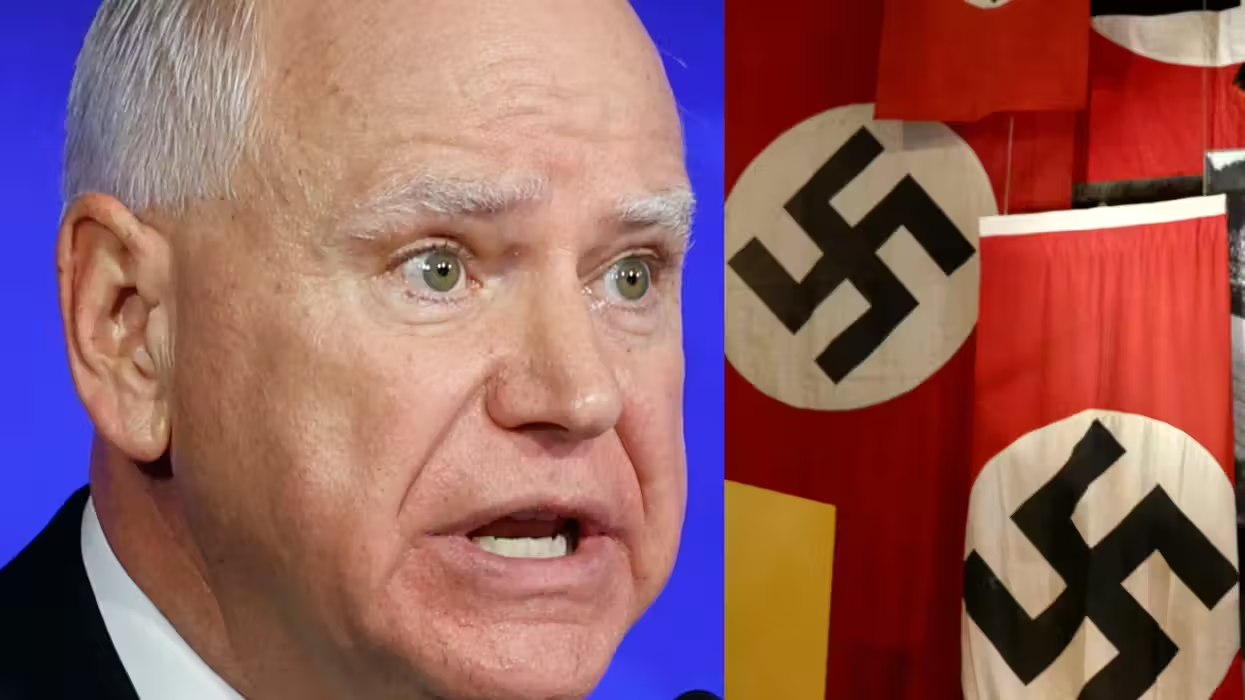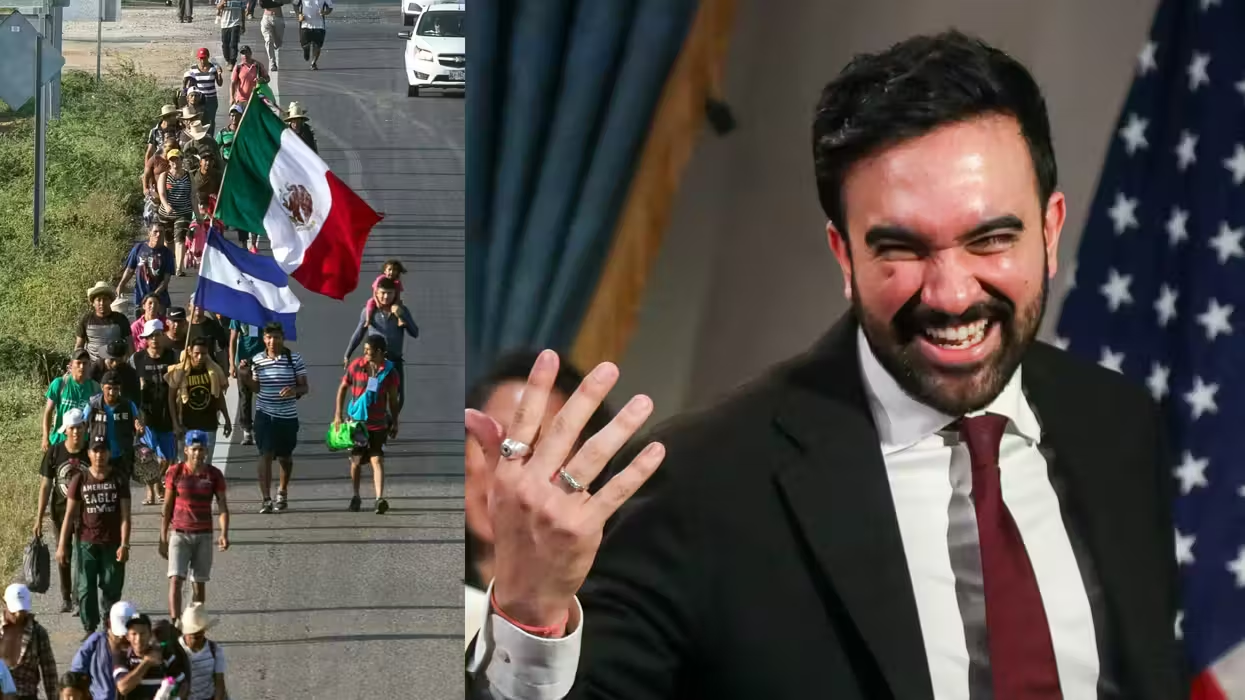The Affordable Care Act, as passed by Congress, looks quite different today. President Barack Obama has unilaterally altered the law to delay the insurance mandate for businesses and make changes for lawmakers so they aren't subject to the same health care regulations as the rest of the American people.
On Thursday, Obama announced that he would be making yet another change to the law by allowing Americans to keep their current health insurance plans, though there are several conditions included in his new pledge.
But that brings us to the question: Does the president of the United States have the legal or constitutional authority to unilaterally change laws passed by Congress?
 President Barack Obama pauses while speaking about his signature health care law, Thursday, Nov. 14, 2013, in the Brady Press Briefing Room of the White House in Washington. Bowing to pressure, President Barack Obama intends to permit continued sale of individual insurance plans that have been canceled because they failed to meet coverage standards under the health care law, officials said Thursday. (AP/Charles Dharapak)
President Barack Obama pauses while speaking about his signature health care law, Thursday, Nov. 14, 2013, in the Brady Press Briefing Room of the White House in Washington. Bowing to pressure, President Barack Obama intends to permit continued sale of individual insurance plans that have been canceled because they failed to meet coverage standards under the health care law, officials said Thursday. (AP/Charles Dharapak)
"The short answer is no," David Corbin, a professor of politics at King’s College in New York, told TheBlaze.
"However, the way he's been operating on this bill is that he can make alterations as he goes along," Corbin said. "And so far, he's been allowed to get away with it."
[sharequote align="center"]"All legislative Powers herein granted shall be vested in a Congress of the United States..."[/sharequote]
Historically, the executive branch has not been allowed to alter laws passed by Congress, he said, adding that there is a constitutional argument to be made.
Corbin cited section one, article one of the U.S. Constitution: "'All legislative powers herein granted shall be vested in a Congress of the United States which shall consist of a Senate and House of Representatives.'"
"The president certainly has some regulatory and prosecutorial discretion in how he executes the law, but he has no legislative power," Corbin said. "If his actions in this case (waiver, extensions, etc.) amount to him becoming a lawmaker rather than a law executor, they are unconstitutional."
Though the Constitution is clear that "all legislative powers" belong to Congress, Corbin said it sometimes comes down to how those in power choose to "interpret" the law.
"I'm not sure he will be able to get away with it in this case because I think people are going to understand that if you are going to remove the law of any legal standing by having the enforcement mechanisms or the penalties stripped out, then what is the law?" the professor added.
Appearing on MSNBC on Thursday, former Vermont Gov. Howard Dean reportedly questioned if Obama really has the "legal authority to do this" when discussing the proposed change to the law, Fox News' Bret Baier tweeted.
During a briefing before the presidential press conference, officials reportedly told members of the press that the White House does have the authority to delay enforcement for a year.
"HHS will be using its enforcement discretion to allow for this transition," the official said, according to the Washington Times. "Enforcement discretion can be used generally in transitions, as well as a bridge towards legislation. This is something that has been used, for example, with the deferred action for childhood arrivals policy, pending immigration reform."
This story has been updated.
–
[related]

 President Barack Obama pauses while speaking about his signature health care law, Thursday, Nov. 14, 2013, in the Brady Press Briefing Room of the White House in Washington. Bowing to pressure, President Barack Obama intends to permit continued sale of individual insurance plans that have been canceled because they failed to meet coverage standards under the health care law, officials said Thursday. (AP/Charles Dharapak)
President Barack Obama pauses while speaking about his signature health care law, Thursday, Nov. 14, 2013, in the Brady Press Briefing Room of the White House in Washington. Bowing to pressure, President Barack Obama intends to permit continued sale of individual insurance plans that have been canceled because they failed to meet coverage standards under the health care law, officials said Thursday. (AP/Charles Dharapak)






